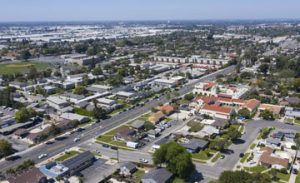The Process of Filing Probate in Orange County

The death of a loved one is never easy. There are countless problems to attend to while processing your grief. One legal matter that needs resolving is the estate of the deceased. The process of filing probate in Orange County may seem daunting, so it can be helpful to see the step-by-step process.
About Us
At Kevin Rice, Attorneys at Law, we know how confusing the probate process can seem. Our founder, Kevin Rice, has a proven track record of assisting the people of Orange County with the probate process for over 25 years. He is an active member of the community, appointed to serve as chairman of the Orange County Planning Commission, and is a member of the Orange County Assessment Board of Appeals. Our team can provide the assistance you need.
What Is Probate?
Probate is the legal process by which a deceased person’s estate is distributed among all interested parties. All debts are settled, and the remaining assets are given to any beneficiaries either named in a will or according to California’s intestate Probate Code. Probate applies if there is a will or no other estate documents, which accounts for 83% of Americans.
There are a few circumstances where probate may be avoided. Some examples include:
- Living trust & other estate planning. Those who have a trust or other estate documents go through a different legal proceeding in Orange County, separate from probate.
- Jointly owned property. Decedents who co-owned property, bank accounts, and other assets of an estate may be eligible to skip probate altogether.
- Estate value under threshold. The personal representative for an estate can skip probate if the estate is under the monetary threshold. The exact figure for the threshold will change following inflation every three years.
If none of these exceptions apply to your case, the following is the general guide to probate in Orange County:
Probate Start
The process starts by filing a DE-111 Petition for Probate. This form is submitted either by the executor named in a will or by a close relative, such as a spouse, sibling, or child. The Petition for Probate must include the death certificate and any existing will. For Orange County citizens, you can submit these documents to the Costa Mesa Justice Complex on Harbor Boulevard.
After you have submitted the documents, a probate hearing is scheduled. This hearing can be scheduled within a month or a few weeks longer.
Notify All Interested Parties
Before the probate hearing, you are legally required to notify all interested parties in the estate using Judicial Council Form DE-120. Interested parties include any creditors, heirs, or beneficiaries. These notifications must be sent out at least 15 days before the probate court hearing, or else the process may face delays.
Probate Hearing
The probate hearing is when a judge will name the personal representative for the decedent’s estate. The personal representative is the person responsible for settling the estate. Typically, it is someone named in the will. If there is no will, the Probate Code has a set hierarchy for who is selected. The personal representative may be changed if contested or the named executor is unfit for the role. If uncontested, the process will continue.
Inventory and Appraisal of Assets
The named personal representative takes a full inventory of all assets that are part of the estate. This includes:
- Real estate
- Personal property
- Financial accounts
- Business interests & investments
- Any other assets
Pay Taxes and Creditors
Once the total value of the estate is calculated, any unpaid state and federal taxes for the estate will be paid first. Afterward, all unsecured debts are paid before the process continues. This includes outstanding medical bills, credit card debt, and existing personal loans.
Final Steps
The executor submits a Final Accounting and Final Distribution to the court. These include all expenses, receipts, and plans for distribution to heirs and beneficiaries. Once approved, the assets are sent out. If no contest, the personal representative will file a DE-295 Petition for Final Discharge and Order. The court will hold a second hearing, where the executor will be released from estate duties and the case will be closed.
Hire a Probate Lawyer
Each step of the process can have issues arise in deadlines, specific details, or objections from interested parties. Hire an Orange County probate attorney who can help you every step of the way. Your probate lawyer will have the skills and experience necessary to solve problems and respond to any concerns. Probate can be difficult, but you don’t have to file alone.
FAQs
Q: How Do You Start the Probate Process in Orange County?
A: To start the probate process in Orange County, you begin by submitting a form DE-111 Petition for Probate to the Costa Mesa Justice Complex on Harbor Boulevard, Costa Mesa. Normally, the petitioner will be the named executor in the will or a valid close relative. A probate lawyer can assist in the initial filing if you are confused or have questions.
Q: How Long Does Probate Take in Orange County?
A: The Length of your Orange County probate case can vary due to a multitude of factors. The size of the decedent’s estate, the complexity of assets, and whether the probate is contested can all increase the time required. Speak with a probate attorney to get a clear estimate for how long your probate case may take.
Q: Who Gets Paid First in Probate in California?
A: The first to get paid in probate in California is the court for the case. Next come secured loans, such as car loans and mortgages. Then taxes and unsecured debts like credit card debt or medical bills. The remaining assets are distributed to beneficiaries. If there is not enough to pay everyone, fees are paid out in order until the money runs out.
Q: How Much Does Probate Cost in Orange County?
A: The total cost of probate in Orange County cannot be stated outright due to the specifics that go into each case. The size of the estate, legal representation, and court expenses can all contribute to and change the final bill. Your probate lawyer can give you a more accurate estimate of how much the process will cost you.
Speak With a Probate Lawyer Today
At Kevin Rice, Attorneys at Law, we’ve been helping the Orange County community for decades with any probate matter. Kevin Rice has lived in the area for his entire life. He knows what challenges you may face and how to help.
Contact us today for a consultation so we can learn your story, or visit our Huntington Beach office—located on Beach Boulevard, a few blocks east of Huntington Beach Central Park East.
Free Case Review
How much is your case worth? Fill out the form below to schedule a free initial consultation.



